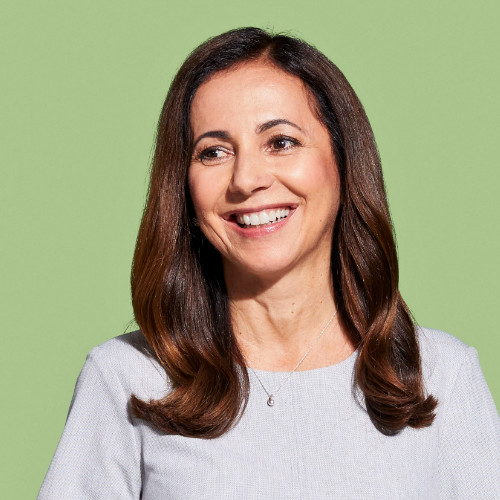
Gallup and LEADx research on employee experience shows that “your manager cares” is now a top five driver of employee engagement. It makes sense: When your leader cares, they’re much more likely to be tuned in to your career and job satisfaction. In turn, you’re much more willing to forgive small mistakes and stressors.
One great example of “caring” in action is at One Medical, where “manager care” is a top-scoring item on their engagement survey year over year. On their last several engagement surveys, the company has scored 89% on the question, “My manager genuinely cares about my well-being.” Chief People Officer (CPO) Christine Morehead commented on this high score: “I think this score is the culmination of how we are preparing our leaders. It’s a wonderful byproduct and something we're very proud of.”
One Medical is a human-centered, technology-powered primary care organization. The company provides care both in person and virtually to enable patients to speak with clinicians when they need care most. One Medical has more than 4,000 employees, primarily working remotely.

One Medical Develops Leaders Who Care by Starting With Aspiring Leaders
Morehead attributes One Medical’s high manager care score to her team’s emphasis on leadership development. She highlighted a few main programs that drive this success:
Emerging leaders: Essential to Morehead’s approach is the fact that her team starts training people before they become managers. “All too often, somebody raises their hand or they get tapped on the shoulder to lead people, and then they begin training once they’re already managers. We went upstream to proactively train our emerging leaders,” Morehead said. The focus of the program is how to get people to start thinking differently and honing the skill sets they will need to be good leaders (skills such as communication, difficult conversations, and feedback). The program is so popular it has a waiting list. To get into the program, people must:
- express interest,
- be a high performer, and
- be recommended by their leader.
New Leaders: A training program for anyone stepping into a leadership role.
Leader Essentials: The next step in leadership evolution from new leader training.
Lead at One Medical: This is a new program for senior leaders. Leaders receive 360-degree feedback. They work on showing up every day in a way that adheres to critical leadership principles and company values (which they refer to as “DNA”).
The Five Strands of One Medical’s DNA
Fittingly, One Medical employees refer to culture as its “DNA” and to its cultural pillars as “strands of DNA.” Morehead “unspooled” each of her company’s five strands of DNA:
- Human-centered: “We design everything we do around the individual, whether it's in our offices or in our work with patients,” Morehead said.
- Team-based: One Medical is a team-based organization. “For example, the in-office provider works hand in hand with our virtual providers. This necessitates team-based work,” Morehead explained. “When you think of your typical primary care physician, they sit in an isolated office seeing patients. We operate differently. We're looking for clinicians who thrive in a team-based environment. As a team, we are able to provide 24/7 support for our members and still maintain a sustainable work-life balance for everyone involved.”
- Intellectually curious: “We find that the most successful people are those who are always curious and wanting to learn. Your lifelong learners,” Morehead highlighted.
- Exercises unbounded thinking: This is about looking at how people challenge the norm or handle day-to-day problems. “Are they developing creative solutions? Can they think outside the box?”
- Driven to excel. “We're looking for people who want to be the best. This will propel our company forward,” she said.
Morehead strives to weave these DNA strands through all the work she performs. “We find that it's very grounding to continue to use the words expressed in our leadership development programs. When I hear our team members echo these words in their everyday conversations, I know we’re living and breathing our culture,” she pointed out.
A Research-Based Approach to Sustaining Culture: Doubling Down on Culture at the 90-Day Mark
Based on research that Morehead collected at a previous company, she fosters culture by delivering a program at one of the most statistically critical moments in an employee’s tenure: the 90-day mark.
“One pivotal touchpoint is at the 90-day mark, when the employee is coming off the honeymoon phase,” Morehead explained. “The job is getting hard, and they may start to question their choice.” To help employees through this touchpoint, Morehead created One Connection, a program to re-introduce the culture, mission, and jobs they're doing. The main goal is to solidify the employee’s connection back to the company mission. “Now that they are 90 days into their work, the idea is to start to get a sense for how their work contributes to our mission,” Morehead explained.
Storytelling is at the heart of this program. “We perform this breakout room exercise with a prompt to ‘Tell me about a time you were most proud to work at One Medical.’ Their stories undoubtedly have all those strands of our DNA. They're powerful, and they're emotional, especially being a healthcare company,” said Morehead.
The CI CARE Initiative for Patient Care
Approximately five years ago, One Medical’s new CEO at the time, Amir Dan Rubin, introduced the CI CARE philosophy. CI CARE is an acronym to help people remember what great customer service and patient care exemplify:
- Connect
- Introduce
- Communicate
- Ask
- Respond
- Exit
In an industry where clinicians have limited time with their patients, it’s challenging to connect with patients. “Asking permission from patients—I'm going to do this, is this okay?—rarely happens in a clinical setting,” Morehead stated, “but it's so powerful because it puts the onus back on the patient to give permission, and it establishes a very different relationship.”


